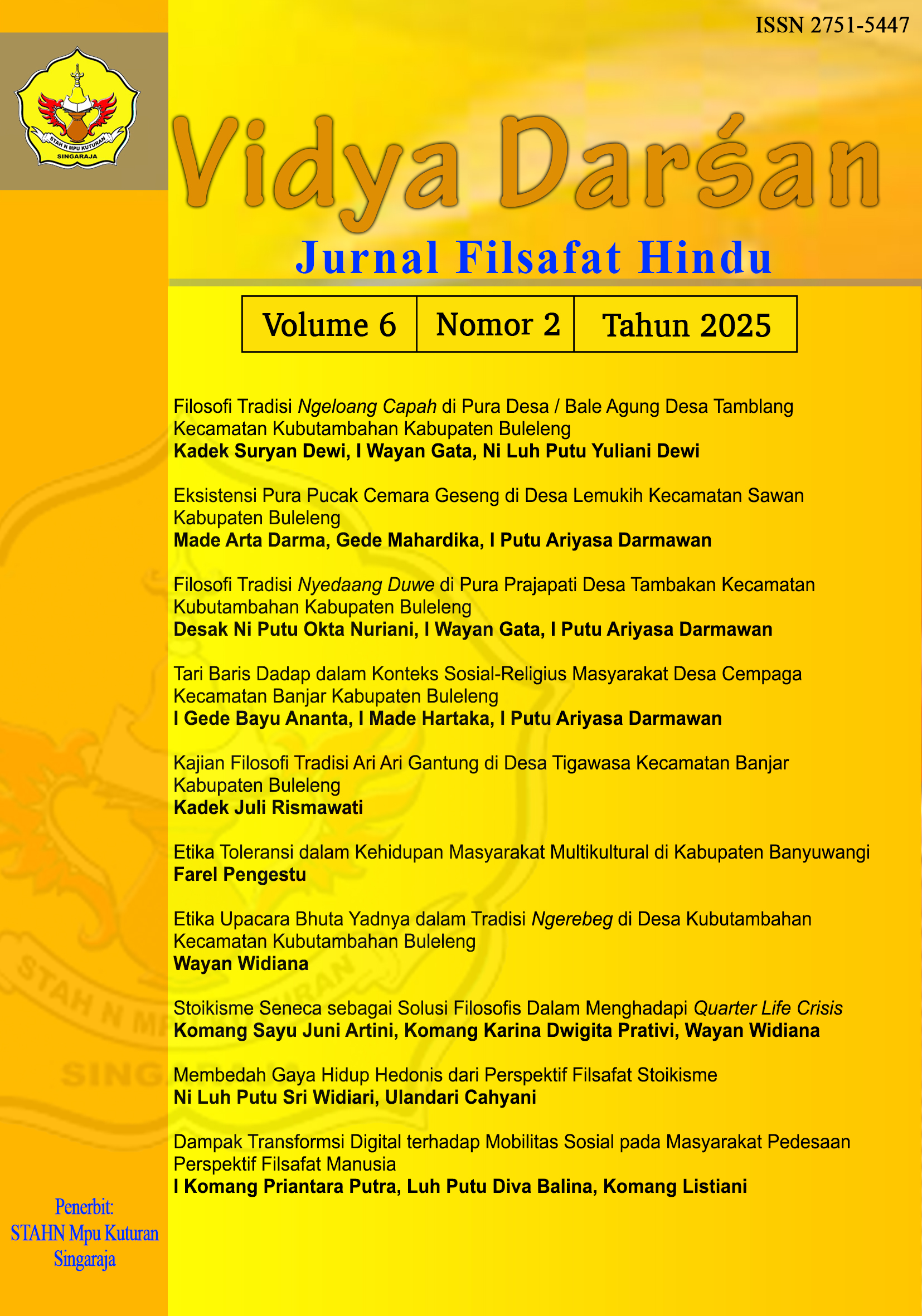MEMBEDAH GAYA HIDUP HEDONIS DARI PERSPEKTIF FILSAFAT STOIKISME
Keywords:
hedonism, modern lifestyle, Stoicism, consumerism, happinessAbstract
Hedonism, as an ethical doctrine that places pleasure as the highest goal in life, has undergone
a significant shift in meaning in modern contexts. This article explores the phenomenon of
contemporary hedonistic lifestyles, which are deeply rooted in consumerist and instant
gratification tendencies, drifting away from the reflective values originally proposed by
philosophers such as Epicurus. Through a qualitative approach and literature review, the
discussion begins by examining the definition and classical essence of hedonism, followed by
the identification of both historical and modern forms that thrive in today’s digital culture. The
article highlights the link between a consumerist lifestyle and instant gratification as the
primary manifestations of modern hedonism. Social media, exhibitionist culture, and
consumerism significantly reinforce behavior centered on superficial pleasure-seeking. Behind
this, however, lie psychological vulnerabilities and fragile life values, which are analyzed
through the lens of Stoic philosophy. Stoicism rejects reliance on external pleasure and instead
offers an alternative view of happiness grounded in inner peace and self-control. By drawing
a comparison between hedonism and Stoicism, this article argues that true happiness is not
solely derived from pleasure, but also from the depth and meaning of life experiences.
Therefore, reinterpreting and critically evaluating the modern lifestyle becomes crucial so that
individuals are not trapped in fleeting euphoria but can achieve stable and sustainable well-
being.

